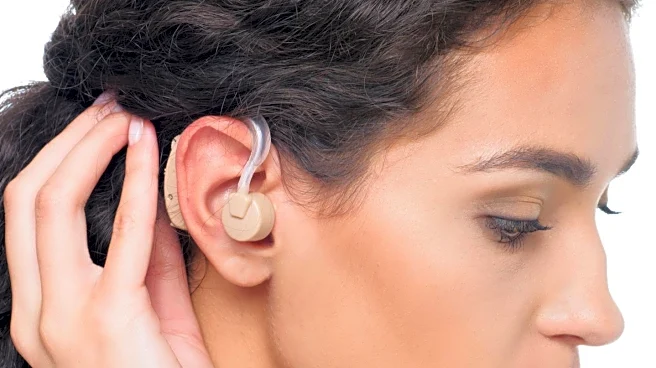What's Happening?
A trend on TikTok suggests that daith and tragus piercings may help alleviate migraines, but medical experts are skeptical. Daith piercings, which involve the cartilage fold above the ear canal, and tragus piercings, which go through the cartilage blocking the ear canal, are believed to disrupt nerve pathways associated with migraine pain. However, neurologists like Dr. Zarmina Mufti and Dr. Melissa Moore caution that there is no scientific evidence supporting these piercings as effective migraine treatments. Traditional migraine management includes lifestyle changes, medications, and FDA-approved devices, while piercings remain untested in clinical trials.
Why It's Important?
The popularity of daith and tragus piercings for migraine relief highlights the growing interest in alternative treatments. However, the lack of scientific validation raises concerns about their efficacy and safety. Migraines are complex neurological conditions that require evidence-based approaches for effective management. Relying on unproven methods could lead to inadequate treatment and prolonged suffering for patients. Healthcare professionals emphasize the importance of consulting with a neurologist to develop a personalized treatment plan based on proven therapies. The trend underscores the need for public awareness about the limitations of anecdotal remedies and the importance of medical oversight.
What's Next?
As interest in alternative migraine treatments persists, there may be calls for more research into the potential benefits and risks of piercings. Clinical trials and controlled studies could provide valuable insights into their effectiveness and safety. In the meantime, healthcare providers will continue to advocate for evidence-based treatments and educate patients about the complexities of migraine management. Patients are encouraged to seek professional medical advice and explore established therapies to address their symptoms effectively.
Beyond the Headlines
The discussion around daith and tragus piercings for migraines reflects broader themes in healthcare, including the role of social media in shaping public perceptions of medical treatments. The trend raises questions about the influence of online platforms on health decisions and the need for critical evaluation of information. It also highlights the importance of patient education and the responsibility of healthcare professionals to guide patients in making informed choices.










